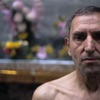Parliament Backs New PM
Parliament on Thursday approved Yuri Yekhanurov as Ukraine's new prime minister, pulling the country back from the brink of crisis after less than a year of liberal government.
The middle-of-the road Yekhanurov replaced Yulia Tymoshenko, who stood alongside President Viktor Yushchenko in last year's "Orange Revolution" protests, but was sacked as prime minister in September after months of infighting split the government.
Yekhanurov, a pragmatist and Yushchenko loyalist, was the president's candidate to take over as prime minister.
Tymoshenko's dismissal and allegations from both sides about the rampant corruption Yushchenko had vowed to stop had pitched the ex-Soviet state into turmoil and generated mass disillusion ahead of a parliamentary election next March.
Yekhanurov was backed by 289 of 450 members, well above the required 226. On Tuesday, he fell three votes short.
The president secured endorsement for his candidate on the second attempt after clinching a deal with the man he defeated last year to take power, ex-prime minister Viktor Yanukovich.
"We must bury the hatchet, bury it a long way from here and, if possible, forget the spot where it lies," Yushchenko said in a brief address before the vote, over in less than 15 minutes.
He was jubilant afterwards.
"At this decisive moment, when it seemed to many that disappointment had taken hold, the nation showed what millions showed last year on the square," he said, referring to weeks of mass rallies in Kiev's Independence Square in his favor.
He said he had faced "a choice between my colleagues and Ukraine. I am happy to have chosen Ukraine."
The new premier, a pragmatist seen as a pre-election stopgap, must patch over rows that have made investors turn tail, notably over privatization, and reverse a slowdown that has reduced economic growth to its lowest rate in five years.
PROVEN LOYALTY
Yekhanurov, born in Russia's polar Yakutia region, has a track record of loyalty, having served as Yushchenko's deputy prime minister when he headed the government in 2000-2001.
He has challenged the policies of the fiery Tymoshenko, pledging no more reviews of often controversial selloffs conducted under previous post-Soviet administrations.
"Some of the uncertainty is over we will have a prime minister at least until January and very likely until the election in March," said Sergei Voloboyev, an emerging markets economist at CSFB in London.
"But the country is in deep pre-election mode. It's very hard to expect significant progress on reform issues in the near term."
Tymoshenko had urged Yushchenko on Wednesday to revive the alliance that helped catapult the president to power last year, but made it clear she wanted her job back as premier.
Yekhanurov, 57, said after the vote that he would name his cabinet line-up next week, promising "a powerful signal for big, medium and small business and also for our partners abroad."
Experts would get key positions alongside politicians.
In his remarks to the chamber, Yushchenko addressed the festering issue of alleged corruption in top government bodies.
To applause, he reduced the size of his secretariat, abolished the post of top aide to the president and reduced the functions of the National Security and Defense Council, which had strongly opposed Tymoshenko before she was dismissed.





